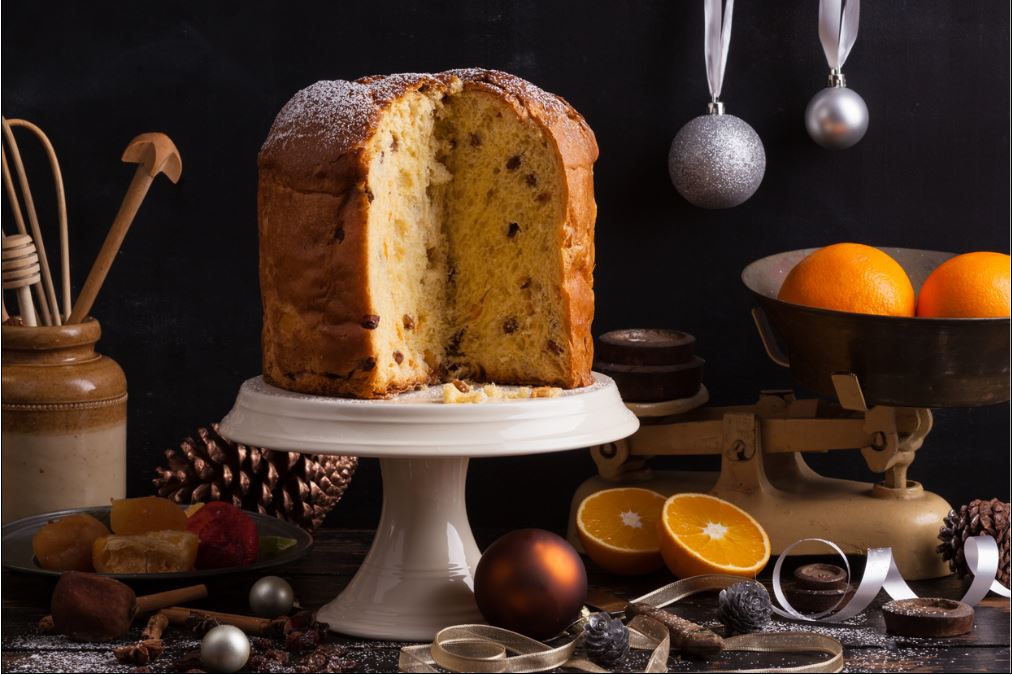Panettone, an International Christmas Dessert!
No matter the country you live in, Christmas is
a time of gatherings and festivities celebrated by sharing
convivial meals, which most often include some traditional
dishes. And everywhere, desserts
are inevitably part of the tradition! This includes panettone, a
delicately sweet brioche cake that's now eaten all over the
world during the holiday season. If you've never heard of this
delicious
pastry, here's everything you need to know about it!
A Disputed Origin Story
Although we know the panettone probably comes from northern
Italy, many legends dispute its origin. The most popular story is
one which takes place at the end of the 15th century, according to
which, one evening, the dessert destined for the Duke of Milan and
his noble guests burned a few minutes before being served. Seeing
this disaster, a young apprentice cook named Toni prepared a
brioche flavoured with citrus peels and candied fruit. Against all
odds, it was a complete success, and the chef decided to keep the
recipe and name it pan del Toni (Toni's bread), which over time
became panettone. Other stories instead suggest that it was created
by another Toni who was in love with the baker's daughter and made
the famous cake to win her over. Who knows what the truth is?
A World of Varieties
In its most basic version, panettone is a sweet brioche bread with
a characteristic dome shape. Soft and honeycombed, its crumb is
filled with candied fruit, raisins and citrus zest. Although it is
impossible to determine who invented panettone, it is known that
during the 20th century, the recipe was adopted by cooks from all
over Italy whom each adapted it to create their own versions, which
explains why there are countless variations depending on the region
today. Panettone can be sweet or savoury, flavoured with fruits,
nuts or honey, and some even with olives, capers or pesto!
The Secret to the Perfect Panettone
With such a wide range of possibilities, it goes without saying
that the success of a good panettone does not lie in the choice of
ingredients, but in its preparation, which is far from being
simple! Indeed, traditionally, this Italian brioche requires two
leavening periods that can take up to three days. Classic recipes
also use homemade sourdough, which itself requires several days of
fermentation. But don't worry, there are plenty of recipes that use
dry yeast instead for a significantly reduced preparation time.
Check out our panettone recipe right here!
How to Eat It
Reheated or grilled, served with jam
, cut into thin slices or thicker quarters... there are a thousand
ways to enjoy panettone. You just need to find the one you like
best! Dice it up to eat in chocolate fondue, make croutons for
terrines and foie gras, or bake it as French toast for a delicious
breakfast!
During the holiday season, our shelves are filled with dozens of
panettoni that come in a variety of shapes and flavours. Visit your
local Adonis and let yourself
be tempted!

